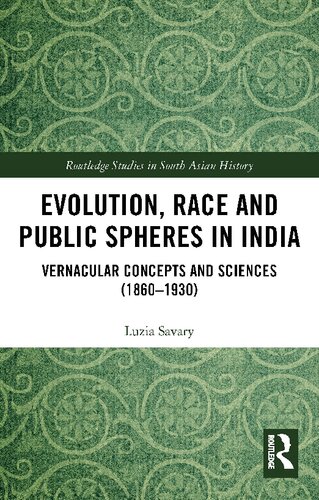

Most ebook files are in PDF format, so you can easily read them using various software such as Foxit Reader or directly on the Google Chrome browser.
Some ebook files are released by publishers in other formats such as .awz, .mobi, .epub, .fb2, etc. You may need to install specific software to read these formats on mobile/PC, such as Calibre.
Please read the tutorial at this link: https://ebookbell.com/faq
We offer FREE conversion to the popular formats you request; however, this may take some time. Therefore, right after payment, please email us, and we will try to provide the service as quickly as possible.
For some exceptional file formats or broken links (if any), please refrain from opening any disputes. Instead, email us first, and we will try to assist within a maximum of 6 hours.
EbookBell Team

4.4
12 reviewsThis book provides an in-depth exploration of South Asian readaptations of race in vernacular languages. The focus is on a diverse set of printed texts, periodicals and books in Hindi and Urdu, two of the major print languages of British North India, written between 1860 and 1930.
Imperial raciology is a burgeoning field of historical research. So far, most studies on race in the British Empire in South Asia have concentrated on the writings of Western-educated elites in English. The range of Hindi and Urdu sources analyzed by the author provides a more varied and complex picture of the ways in which South Asians reinterpreted racial concepts, thereby highlighting the importance of scrutinizing the vernacular dimensions of global entanglements. Part I of the book centers on the debates on "civilization" and "civility" in Hindi and Urdu periodicals, travelogues and geography books as well as Hindi literature on caste. It asks if and in what respect the discussions changed when authors appropriated racial concepts. Part II revolves around the "science" of eugenics. It scrutinizes more popular genres, namely, early twentieth century advisory literature on "fit reproduction." It highlights how the knowledge promoted there was different from "eugenics" as the (mainly English-writing) founders of the Indian eugenic movements endorsed it.
A fascinating analysis of the ways in which colonized elites have adopted and readapted racial concepts and theories, this book will be of interest to academics in the fields of Modern South Asian History, History of Science, Critical Race Studies and Colonial and Imperial History.